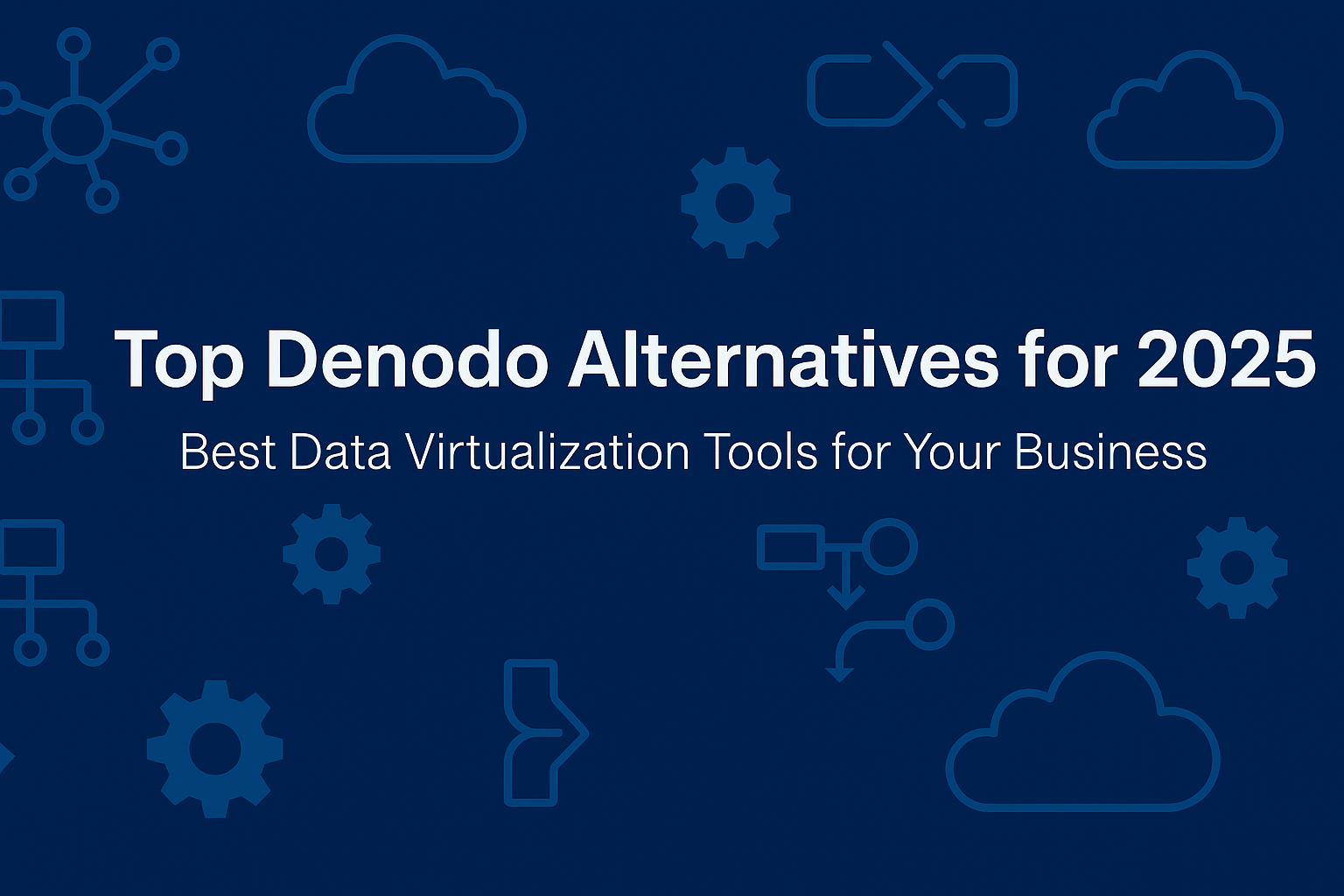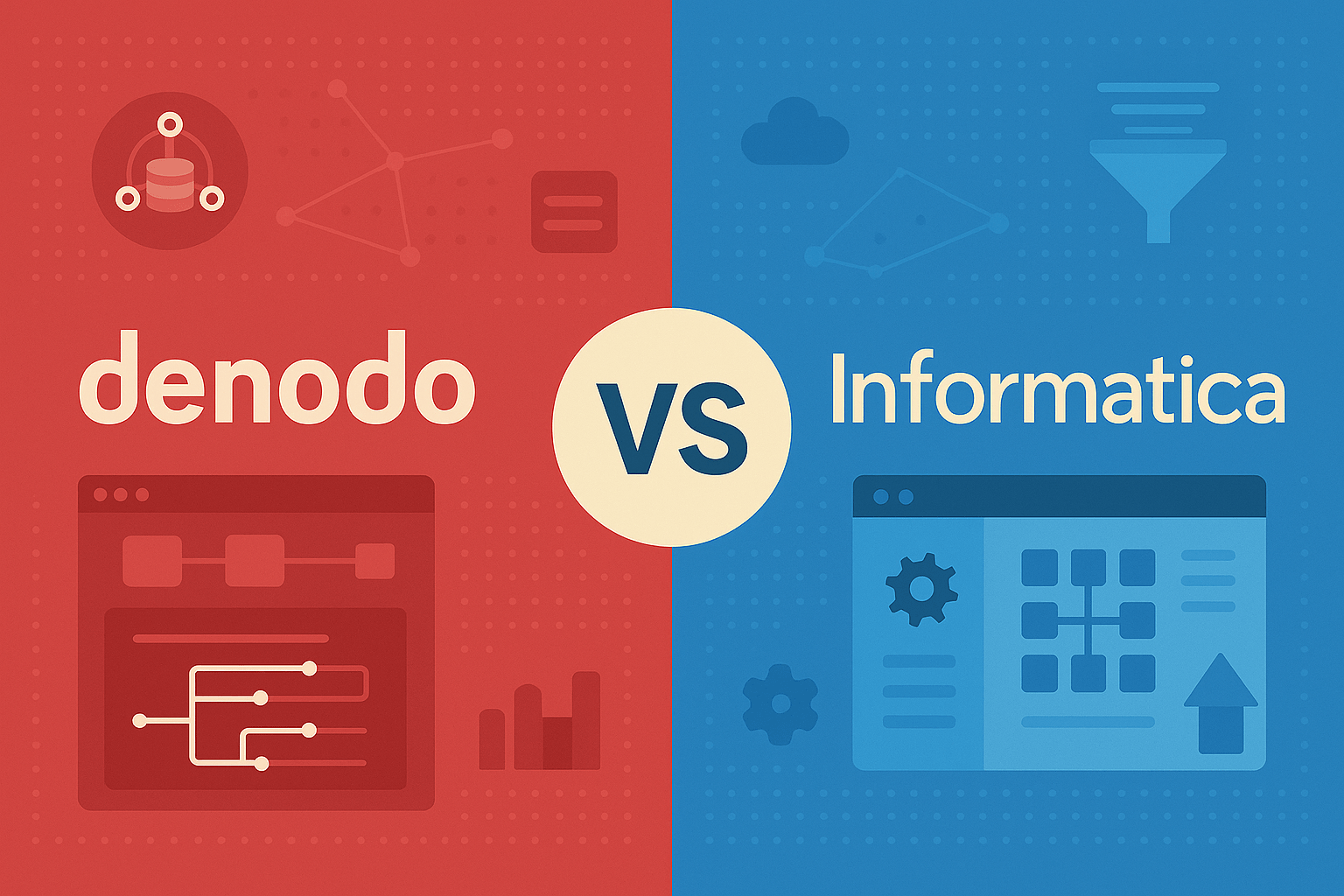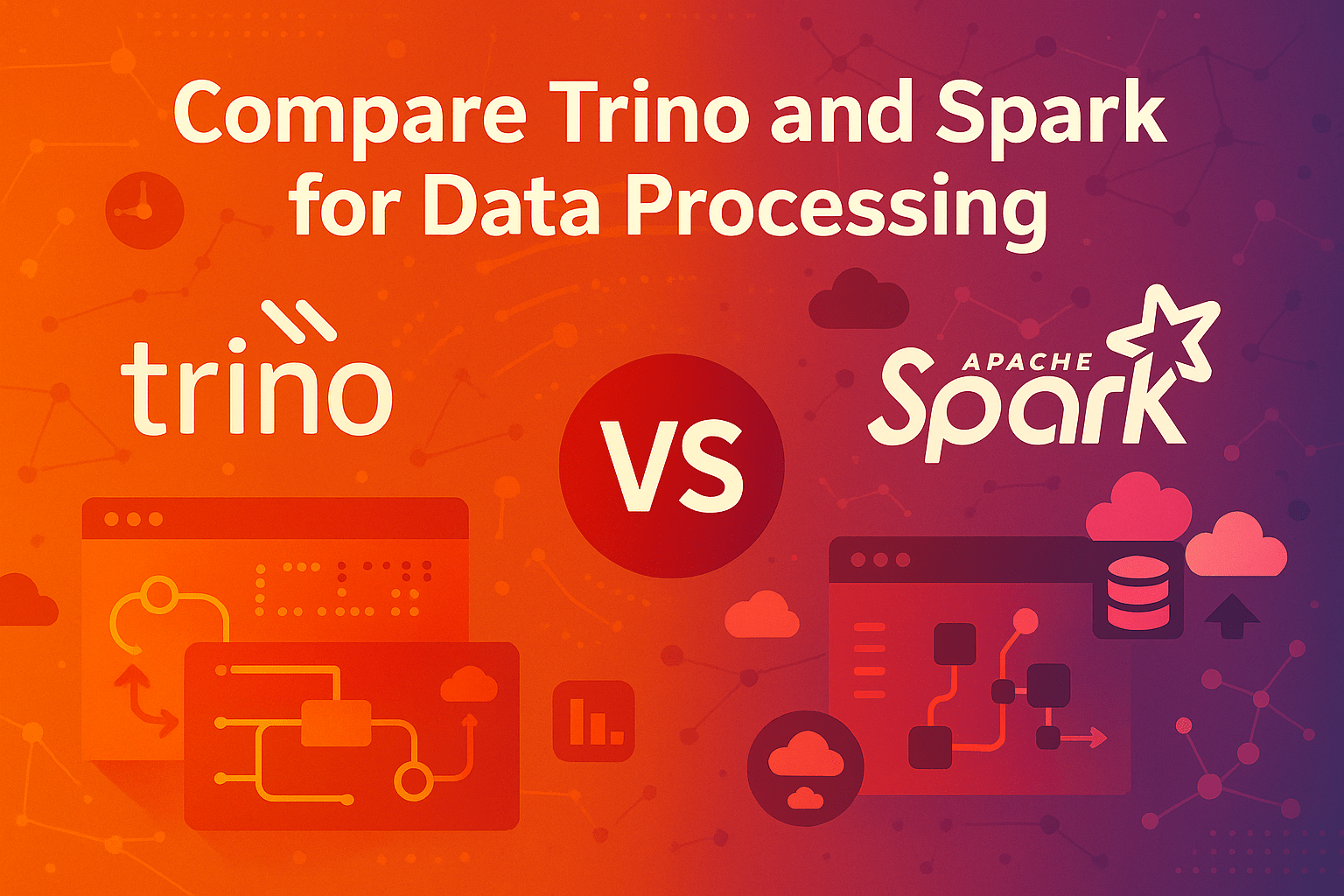Alteryx vs Dataiku: Which Analytics Platform is Right for You?
Optimize Your Business Analytics Success
Choosing the right analytics platform can transform how your organization leverages data for decision-making. Alteryx and Dataiku both offer powerful solutions for business analytics, but they serve somewhat different needs and workflows.
This comprehensive comparison will help you determine which platform aligns with your specific requirements, technical capabilities, and strategic objectives.
Data Analytics Platform Comparison
|
Category |
Alteryx |
Dataiku |
Factory Thread |
|---|---|---|---|
|
Core Focus |
Structured data prep & analytics |
Collaborative data science & machine learning |
Real-time operational integration for manufacturing |
|
Target Users |
Business analysts, data prep teams |
Data scientists, engineers, analysts |
Plant managers, engineers, OT/IT integration teams |
|
Interface Style |
Drag-and-drop canvas with workflow tools |
Visual + code-based flow builder |
No-code/low-code GUI + AI-powered flow generation |
|
Collaboration |
Individual workflow authoring |
Team-based projects with shared flows |
Centralized flow catalog with user access & versioning |
|
Real-Time Capabilities |
Limited (workflow-based execution) |
Supports real-time via APIs and automation |
Native real-time data access, triggers, and scheduling |
|
Data Movement |
Structured ingestion, transformation |
Works on ingested data or integrated systems |
No data movement—accesses data in place |
|
Deployment |
Desktop + server/cloud |
Cloud-native, on-prem or hybrid |
Cloud, on-prem, and edge runtime environments |
|
System Integration |
Structured data sources, Excel, databases |
Broad support including ML libraries and cloud services |
Siemens Opcenter, ERP, flat files, APIs, SQL, cloud tools |
|
Use Case Strengths |
Financial reports, marketing dashboards, supply chain |
ML pipelines, AI projects, data democratization |
OEE dashboards, real-time production sync, factory alerts |
|
Self-Service Support |
Strong for analysts |
Strong across roles with guided tools |
Google-style search + drag-and-drop for all roles |
|
Governance |
Strong version control and audit trail |
Project-level access and lineage tools |
Role-based access, error alerts, version history |
What Makes These Platforms Unique?
Alteryx – Structured Analytics Excellence

Alteryx gives you a user-friendly interface for data preparation and analytics, making it the perfect choice for organizations that value accessibility and efficiency.
Key benefits of Alteryx:
-
User-friendly interface for technical and non-technical users
-
Deep expertise in data quality and profiling
-
Advanced workflow automation
-
Streamlined data preparation tools
Alteryx has established itself as a robust platform centered around an integrated workspace with a tool palette, workflow canvas, and configuration panels. Its design prioritizes accessibility, allowing users to perform complex data manipulation without extensive coding knowledge. The platform excels at extracting, transforming, and loading data from numerous structured sources through its intuitive drag and drop interface.
When examining Alteryx’s browse tool, users discover powerful capabilities for data exploration that help identify quality issues such as whitespace problems and null values. This focus on data quality makes Alteryx particularly valuable for organizations requiring consistent, governed analytics.
Read more: Top Alteryx Alternatives and Competitors (for 2025)
Dataiku – Collaborative Analytics Environment

Deploying Dataiku creates a natural collaborative environment for your organization. Dataiku platforms grow beautifully across teams, giving you robust, flexible analytics that integrate with your existing business landscape.
Key benefits of Dataiku:
-
Collaborative platform for data scientists and business users
-
Visual recipes for complex workflows
-
Cloud-based platform for real-time collaboration
-
Natural integration with existing systems
Dataiku positions itself as an enterprise-scale collaborative platform designed to break down silos between data scientists, analysts, and business users. Its interface is structured around flows (representing project pipelines), datasets, and visual recipes that serve as modular transformation steps.
The platform supports the entire data science lifecycle from data preparation through advanced analytics and machine learning to model deployment and monitoring. Dataiku offers both visual recipe options and code recipes, allowing technical users to integrate Python, R, and other coding environments while enabling less technical users to leverage point-and-click functionality.
Alteryx vs. Dataiku: What’s the Difference?

Data Governance
-
Alteryx: Complete control over data quality and workflow management
-
Dataiku: Natural collaboration, but requires thoughtful governance planning
-
Alteryx: Strong version control and change tracking
-
Dataiku: Team-oriented commenting and sharing
Alteryx offers mature, granular control over data quality, workflow management, and version control. The platform provides robust tools for workflow optimization, auditing, and documentation that foster strong governance in environments with well-defined analytics processes. Users benefit from the ability to monitor data lineage and quality throughout the analytics pipeline.
Dataiku, with its collaborative focus, centers governance around team-oriented features like project sharing, commenting, and review functionality. While its governance capabilities are robust, the platform requires more disciplined organizational planning to avoid governance gaps as collaborative projects grow in complexity.
Scalability
-
Alteryx: Well-contained for defined analytics processes
-
Dataiku: Can grow to support enterprise-wide initiatives
Alteryx performs exceptionally well in environments with defined, repeatable analytics processes. Its performance and governance are optimized for workloads where the scope can be contained, such as financial reporting or supply chain optimization. However, as analytics initiatives scale across departments, Alteryx requires careful workflow management to maintain performance.
Dataiku excels at enterprise-wide deployments and scales comfortably with organizational growth. Its architecture supports multiple teams working on shared data projects, with distributed compute and cloud-native flexibility making it ideal for large-scale AI initiatives across business units.
Integration
-
Alteryx: Excellent with structured data sources and defined workflows
-
Dataiku: Broader connectivity with multiple coding environments and platforms
Alteryx is known for strong integration with traditional structured data sources, databases, and leading BI platforms. Its ETL capabilities, including complex joins, make it a favorite for organizations with established analytics environments.
Dataiku prides itself on broad connectivity, including native support for cloud data warehouses, machine learning frameworks, and source control tools. It facilitates integration with both structured and unstructured data across hybrid and multi-cloud landscapes.
What Experienced Users Say
Alteryx Enthusiasts Love:
- Intuitive drag-and-drop interface
- Protection from data quality issues
- Powerful automation potential
Alteryx users consistently highlight the platform’s accessibility and efficiency. The ability to automate complex workflows without writing code is frequently mentioned as a key benefit. Users praise how quickly they can create and modify repeatable processes for data manipulation. The platform’s strengths in data preparation and transformation make it particularly valuable for organizations that need to combine data from multiple files or sources.
Many Alteryx users appreciate how the tool helps them maintain data quality through built-in profiling and validation capabilities. However, some note that performance can be affected by very large datasets, and pricing may be a concern for smaller teams.
Dataiku Users Love:
- Natural collaboration patterns
- Flexible development environment
- Dramatic machine learning capabilities
Dataiku is praised for enabling seamless collaboration among data scientists, engineers, and business analysts. Its flexible development environment supports both code and no-code approaches, appealing to organizations with diverse technical skill sets. The ability to handle both visual recipes and code-based development in the same project creates a unified workspace for teams with varying expertise.
Reviewers frequently mention Dataiku’s advanced machine learning models and AI capabilities as key strengths. The platform’s collaborative features receive particular praise, with multiple users able to work simultaneously on different components of complex workflows. Some users note that the learning curve can be steeper and that performance may degrade with extremely large or complex workflows.
Platform Requirements Overview
-
Alteryx: Regular attention to workflow optimization, version control, and data source management
-
Dataiku: Team coordination with shared projects and code repositories
Both require proper implementation planning and organizational support.
Alteryx requires an organized approach to workflow optimization and careful version control. Organizations must allocate resources for maintaining and tuning workflows as business needs evolve. Training and support for non-technical users are essential to maximize the platform’s accessibility benefits.
Dataiku’s team-centric approach requires coordination around project structures, shared code repositories, and responsibilities for model monitoring. Success depends on clear role definitions, collaborative project planning, and governance processes to avoid redundancy as multiple users iterate on shared workflows.
Regardless of which platform you choose, proper implementation planning and ongoing organizational support are vital to ensure success and minimize risks associated with poor governance or technical debt.
Which Analytics Platform is Right for You?
Choose Alteryx if you want:
✔ Total control over data preparation workflows
✔ Consistent analytics processes
✔ Accessible tools for both technical and business users
Alteryx is ideal for teams seeking structured data analytics and automation. It enables consistent, repeatable workflows that can be easily managed by both technical and non-technical users, making it a staple in finance, healthcare, retail, and marketing domains with strict controls or clear reporting needs.
Organizations that prioritize data prep efficiency and user-friendly interfaces for their power users will find Alteryx’s approach particularly valuable. The platform excels when deployed in environments with well-defined analytics requirements and where control over data quality is critical.
Choose Dataiku if you want:
✔ Collaborative development environment
✔ Flexible data science capabilities
✔ Large, enterprise-scale deployment
Dataiku shines when collaboration, flexibility, and the ability to scale data science initiatives enterprise-wide are priorities. Its powerful machine learning suite and team-oriented design are best suited to organizations embarking on broad digital transformation or deploying advanced analytics at scale.
The platform’s ability to support both visual and code-based development makes it particularly valuable for diverse teams with varying technical expertise. Organizations looking to build and deploy sophisticated machine learning models while maintaining a collaborative workflow will appreciate Dataiku’s comprehensive approach.
Both can deliver powerful analytics results. If you want structured workflows and accessibility, choose Alteryx. If you want collaborative data science and flexibility, Dataiku is the better choice.
Note: Make sure to consider your organization’s specific needs, including team structure, existing technologies, and implementation costs when making your decision!
Benefits, Limitations, and Challenges
Alteryx Strengths and Limitations
Alteryx’s strengths lie in its usability, structured analytics approach, and deep expertise in data quality. The platform’s drag and drop tools create an accessible environment where business users can create sophisticated workflows without extensive technical knowledge.
However, organizations may face performance challenges with extremely large datasets or complex analytical processes. The platform requires careful workflow management and version control as usage expands across the organization.
Dataiku Strengths and Limitations
Dataiku’s benefits center on collaboration, scalability, and advanced machine learning capabilities. The platform excels at supporting diverse teams working together on complex data projects, with both visual recipes and coding options available within the same environment.
Organizations implementing Dataiku may encounter steeper learning curves for non-technical users and potential performance challenges with the largest workloads. The collaborative nature of the platform also requires thoughtful governance planning to avoid chaos as projects grow in complexity.
Implementation Considerations
Both platforms require significant planning and organizational commitment to realize their full potential:
-
Technical expertise requirements: Alteryx demands less coding knowledge but benefits from users who understand data structures and analytics processes. Dataiku can accommodate both code-first and no-code approaches but requires coordination between technical and business teams.
-
Integration planning: Consider how either platform will connect with your existing data sources, databases, and business intelligence tools. Evaluate which platform better aligns with your current technology stack.
-
Governance strategies: Develop clear processes for workflow management, version control, and access permissions regardless of which platform you choose. This becomes increasingly important as your analytics initiatives scale.
Current Trends and Future Outlook
Organizations are increasingly prioritizing analytics platforms that support both code-first and no-code approaches, real-time collaboration, and seamless integration with modern cloud data ecosystems. Both Alteryx and Dataiku continue to evolve in response to these market demands.
Dataiku is well-positioned for the future with its enterprise AI feature set and cloud-native design, while Alteryx continues to expand its advanced analytics capabilities and cloud compatibility. Expert consensus suggests that the analytics platform landscape will continue to shift towards collaborative, AI-enabled, and cloud-integrated solutions.
The gap between these platforms may narrow as both grow their capabilities, but their core philosophies remain distinct. Alteryx continues to excel at structured, accessible analytics workflows, while Dataiku maintains its strength in collaborative, flexible data science.
Factory Thread – Real-Time Analytics Integration for Industrial Operations
While Alteryx focuses on structured data prep and Dataiku empowers collaborative data science, Factory Thread carves out a unique role—purpose-built for manufacturers and operations-driven enterprises that need real-time insights across diverse systems like MES, ERP, SQL, and flat files.
Factory Thread isn’t just an analytics tool—it’s a data unification and orchestration platform that enables organizations to build, deploy, and monitor real-time workflows without writing code. Its visual designer and AI assistant make it easy to build complex data flows, schedule analytics, and expose real-time OData/REST endpoints for dashboards and applications.
Key benefits of Factory Thread:
-
Real-Time Data Federation: Virtualize and orchestrate data from multiple OT/IT systems without duplication.
-
Low-Code/No-Code Interface: Build analytics pipelines with drag-and-drop simplicity, aided by AI-generated flows.
-
Industrial System Connectivity: Seamlessly integrates with Siemens Opcenter, Rockwell Plex, SQL, APIs, and more.
-
On-Prem and Edge Support: Deploy analytics and alerts to on-site infrastructure or cloud with zero downtime.
-
Self-Service Catalog: Discover and reuse trusted data views across teams—even for non-technical users.
Factory Thread is ideal for:
✔ Real-time inventory and production analytics
✔ Edge-enabled analytics in manufacturing plants
✔ Operations teams needing agility without IT bottlenecks
✔ Organizations requiring secure, low-latency data access
Where Alteryx simplifies data prep and Dataiku enables scalable collaboration, Factory Thread shines in connecting the real world of production data to your analytics layer—instantly and securely. It's the go-to platform when business outcomes depend on timely, accurate operational insights.
Share this
You May Also Like
These Related Stories

Alternatives to Denodo’s Data Virtualization Platform (for 2025)

Denodo vs Informatica: Which Data Integration Tool is Right for You?



No Comments Yet
Let us know what you think